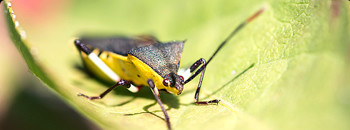It’s well known that West Nile Virus is transmitted by mosquitoes. But now, thanks to our flying foe, a nearly forgotten illness has made its way back into the United States. U.S. cases of dengue fever are on the rise, reminding us again that mosquito bites are more than a nuisance – they can pass along serious disease.
What is Dengue Fever?
Dengue fever is a virus-based disease spread by mosquitoes. It’s caused by one of four different but related viruses and is spread by the mosquito bites. There is no cure, but most people fully recover from the illness. However, there is the risk of contracting dengue hemorrhagic fever which is significantly more dangerous. Symptoms of the disease include:
- Sudden high fever, often as high as 104 – 105 degrees
- A flat, red rash that may appear over most of the body 2 – 5 days after the fever starts
- A second rash, which looks like the measles, appears later in the disease with increased skin sensitivity
- Headache (especially behind the eyes)
- Fatigue
- Joint aches
- Muscle aches
- Nausea
- Swollen lymph nodes
- Vomiting
Although prevalent in parts of southern Texas in 2005, nearly all dengue cases reported in the 48 contiguous states have been acquired elsewhere by travelers or arrive with immigrants according to the Centers for Disease Control (CDC). Before that, a small outbreak was seen in Hawaii in 2001, but most North American dengue cases are seen in Puerto Rico, the U.S. Virgin Islands, Samoa and Guam.
Why Worry?
As recently as two weeks ago, dengue fever made another appearance in the United States. Reports from Florida, Los Angeles and New York found dengue fever to have infected a number of citizens who had been in Key West, Florida. The disease had not been seen in Florida since 1934 but the New York Times reported on May 24 that Florida had seen more than 25 cases since the initial encounter this year. The LA Times recounted a case in Rochester, NY of a woman with the disease which was initially undiagnosed.
ABC News quoted the CDC’s May 21 issue of Morbidity and Mortality Weekly Report saying, “The re-emergence of dengue in Florida as well as the threat posed to the U.S. from other emerging mosquito-borne arboviruses emphasizes the necessity for mosquito control infrastructure to identify and control outbreaks of dengue or other mosquito-borne diseases.”
What Can We Do?
Protect yourself and your loved ones from bites during this mosquito season. Mosquito repellent can control the number of these nuisances and prevent the contraction or spread of disease. Be sure to read the label and follow the instructions to safely apply mosquito repellent to yourself and your family.
Take steps to avoid mosquitoes near your home and your body such as:
- Removing areas of stagnant or standing water
- Controlling weeds, dead leaves and overgrown grass where adult mosquitoes like to rest
- Covering up with long-sleeved clothing and long pants whenever possible
- Staying indoors when possible during peak mosquito hours (from dusk until dawn)
- Applying an insect repellent when you know you’ll be at risk
Also, be sure to educate yourself on dengue fever and check out the CDC.gov website for more information.

